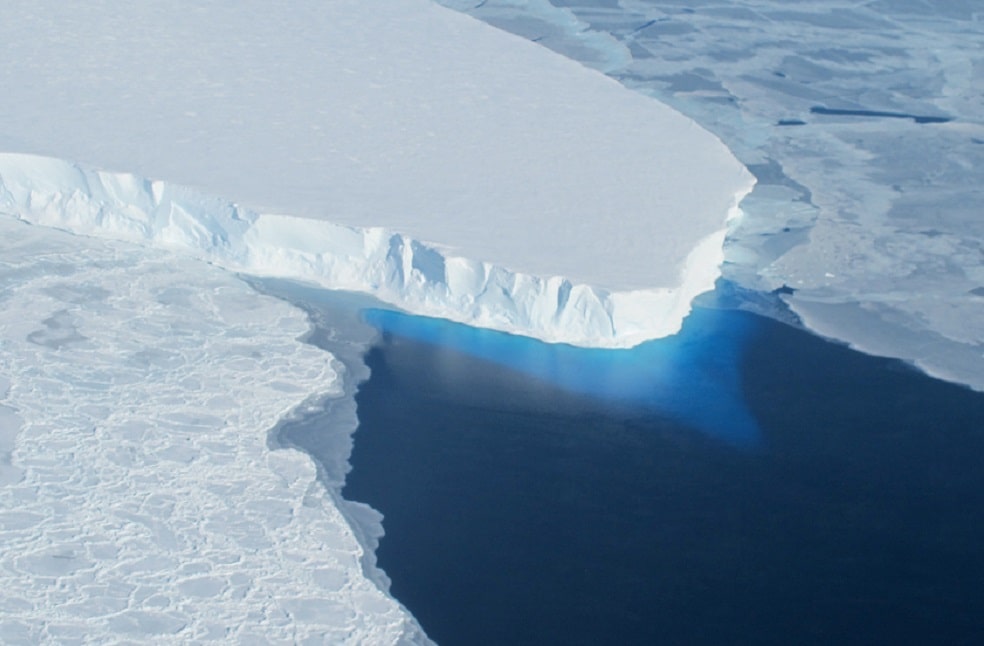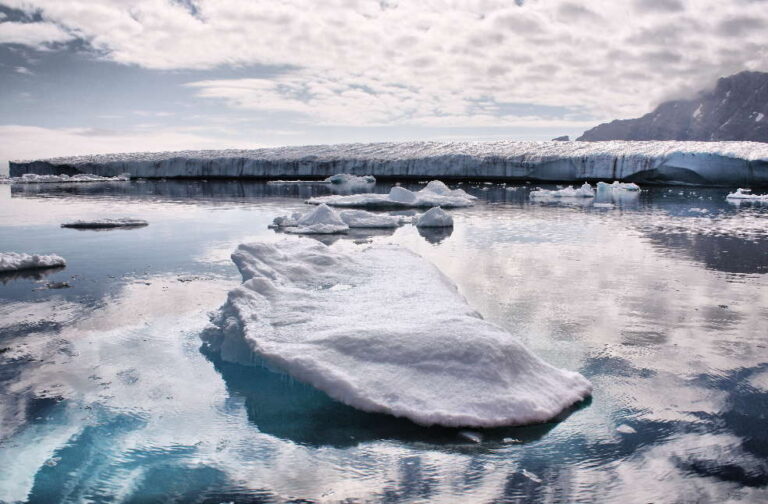United Kingdom: A new study has found that ice sheets can collapse into the ocean in spurts of up to 600 metres (2,000 feet) a day, far faster than has ever been recorded before.
The researchers stated that the finding, based on sea floor sediment formations from the last ice age, was a “warning from the past” for today’s world, in which the climate crisis is eroding ice sheets.
According to the authors, the discovery shows that some ice sheets in Antarctica, including the “Doomsday” Thwaites glacier, could suffer periods of rapid collapse in the near future, further contributing to the rise of sea level.

The rising oceans are some of the greatest long-term impacts of global warming since hundreds of major cities around the world are on coastlines and are increasingly vulnerable to storm surges and flooding. The West Antarctic ice sheet may already have passed the point at which major losses are unstoppable, which will eventually lead to metres of sea level rise.
The research, published in the journal Nature, used high-resolution mapping of the sea bed off Norway, where large ice sheets collapsed into the sea at the end of the last ice age 20,000 years ago.
Measuring the distance between the ridges enabled the scientists to calculate the speed of the Norwegian ice sheet’s collapse.
The research found speeds of between 50 metres per day and 600 metres per day. That is up to 20 times faster than the speediest retreat previously recorded by satellites, of 30 metres a day, at the Pope Glacier in West Antarctica.

Dr. Christine Batchelor at Newcastle University in the UK, who led the research, commented that “our research provides a warning from the past about the speeds that ice sheets are physically capable of retreating at. It shows that pulses of rapid retreat can be far quicker than anything we’ve seen so far.”
“The measurement at Pope Glacier showed 30 metres per day sustained for about three and a half months. But 600 metres a day definitely wouldn’t be sustained for a year or many years. You would have no ice left,” Dr. Batchelor added.



